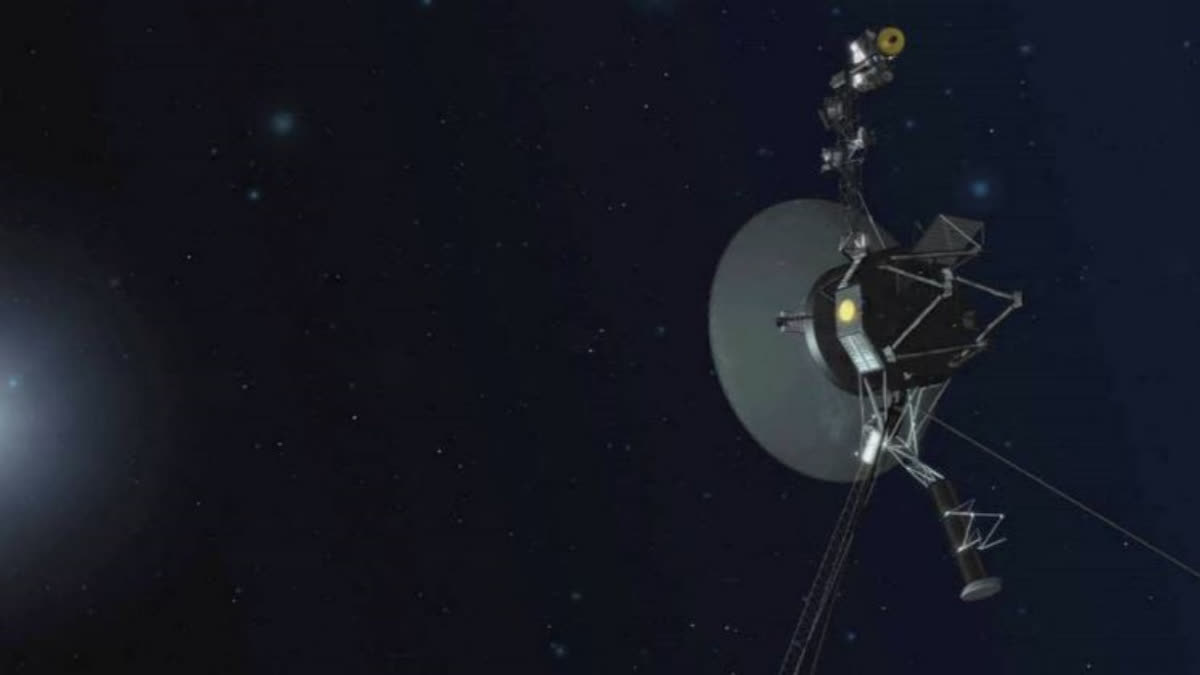Geneva: A space war appears to be raging between two old protagonists of World War theatre and it can get menacing. The murky arms war in outer space, which has been the subject of Hollywood science fiction movies so long, appears real and is being waged by the US and Russia.
The spillover at the UN saw Russia vetoing of a U.S.-drafted United Nations Security Council resolution which called on countries to prevent an arms race in outer space triggered a war of words between two global powers.
The United States slammed Russia for vetoing a UN Security Council resolution on the Outer Space Treaty that put a legally binding obligation that countries should not be putting weapons of mass destruction (WMD), including nuclear weapons, in orbit.
"As we have noted previously, the United States assesses that Russia is developing a new satellite carrying a nuclear device. We have heard President (Vladimir) Putin say publicly that Russia has no intention of deploying nuclear weapons in space. If that were the case, Russia would not have vetoed this resolution," US National Security Advisor Jake Sullivan said in a statement, after Russia vetoed the resolution at the UN headquarters in New York.
"Today, Russia vetoed a UN Security Council resolution, proposed jointly by the United States and Japan, that would have reaffirmed the fundamental obligation of State Parties to the Outer Space Treaty not to place nuclear weapons in orbit around the Earth," Sullivan said. The resolution also would have called on all member-states not to develop nuclear weapons specifically designed to be placed in orbit, he added.
"Placement by a State Party of a nuclear weapon in orbit would not only violate the Outer Space Treaty but would threaten the vital communications, scientific, meteorological, agricultural, commercial and national security services that any and all satellites provide to societies around the globe," Sullivan said.
Russia's action made the United States to question if Moscow was hiding something. Washington's allegation that Moscow is developing an anti-satellite nuclear weapon to put in space, a charge that Russia has denied, met with the US's refrain.
The US's ally Japan also joined the country in moving the UN resolution on Wednesday requesting all countries to prevent a dangerous nuclear arms race in outer space. Both countries termed it 'a dirty spectacle' that cherry-picks weapons of mass destruction from all other weapons that should also be banned.
The vote in the 15-member Security Council was 13 in favour of Russia though its key ally China abstained.
The resolution was meant to desist all countries not to develop or deploy nuclear arms or other weapons of mass destruction in space as under a 1967 international treaty that included the US and Russia, which are supposed to stay away from indulging in an arms race in outer space.
Russian President Vladimir Putin has maintained that Moscow was against putting nuclear weapons in space.
The US-Russia spat
The war of words between two global took an ugly turn. "It's baffling and it's a shame," was the reply of US ambassador to the U.N. Linda Thomas-Greenfield after the vote.
US Ambassador to the United Nations Linda Thomas-Greenfield told members of the UN Security Council that by vetoing the resolution, Russia has abandoned its responsibility.
"Of course, this is not the first time Russia has undermined the global non-proliferation regime. Over the past few years, Russia has irresponsibly invoked dangerous nuclear rhetoric and walked away from several of its arms control obligations. It has remained unwilling to engage in substantive discussions around arms control or risk reduction. And it has defended and even enabled dangerous proliferators," she said.
Had it been adopted, the resolution would have also emphasised the necessity of further measures, including political commitments and legally binding instruments, with appropriate and effective provisions for verification, to prevent an arms race in outer space in all its aspects.
"Today's veto begs the question: Why? Why if you are following the rules would you not support a resolution that reaffirms them? What could you possibly be hiding?" she told the council.
In a counter, Russia's UN Ambassador Vassily Nebenzia charged Washington of trying to malign Moscow. He added Russia would soon begin negotiations with council members on its own draft resolution aimed at keeping space peaceful.
"We want a ban on the placement of weapons of any kind in outer space, not just (weapons of mass destruction). But you don't want that ... Let me ask you that very same question: Why?" Nebenzia asked.
The draft resolution was put to a vote by the U.S. and Japan after nearly six weeks of negotiations. It received 13 votes in favour, while China abstained and Russia cast a veto.
The UN text would have affirmed an obligation to comply with the Outer Space Treaty and called on states "to contribute actively to the objective of the peaceful use of outer space and of the prevention of an arms race in outer space."
The 1967 Outer Space Treaty negates signatories, including Russia and the United States, from placing "in orbit around the Earth any objects carrying nuclear weapons or any other kinds of weapons of mass destruction. (With agency inputs)
Read more



